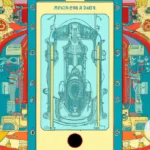Every night, we enter a mysterious realm where our wildest fantasies and deepest fears come to life: our dreams. These nocturnal adventures have fascinated humans for centuries, prompting us to seek answers and unlock the hidden meanings behind them. Whether you dream of soaring through the sky, encountering strange creatures, or being chased through dark alleys, understanding the symbolism and messages encoded within your dreams can provide valuable insights into your subconscious mind. In this comprehensive guide, we will delve into the fascinating world of dream interpretation, uncovering the significance behind common symbols, colors, scenarios, and archetypes. By the end, you’ll be equipped with the knowledge and tools to unravel the enigmatic language of your dreams and gain a deeper understanding of yourself. So, fasten your seatbelts and prepare for a journey into the realm of dreams like never before.
The Importance of Dream Interpretation
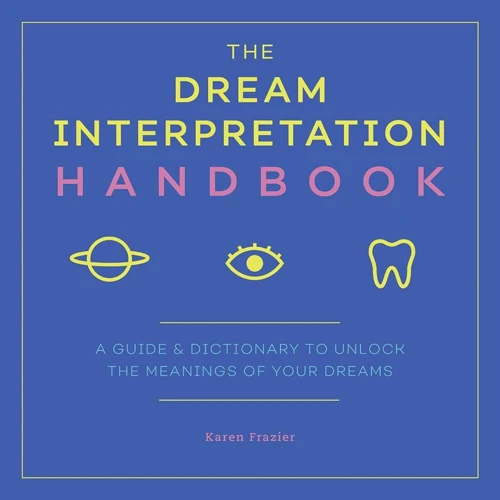
Dream interpretation holds immense importance in unlocking the hidden messages and meanings behind our dreams. By interpreting our dreams, we gain insights into our subconscious mind and the inner workings of our psyche. It allows us to tap into our deepest desires, fears, and unresolved emotions that may be affecting our waking lives. Dream analysis can provide guidance, clarity, and even serve as a therapeutic tool. It helps us make sense of puzzling symbols and vivid scenarios that we experience during sleep. Understanding the significance of dream symbols, such as animals and objects, can offer valuable insights into our thoughts, emotions, and experiences. Exploring the colors, scenarios, and archetypes present in our dreams can unlock profound revelations about ourselves. Dream interpretation can also help us explore recurring dreams, nightmares, and anxiety-driven dreams, allowing us to address underlying issues and find resolution. With the aid of dream journals, we can keep track of our dreams’ intricate details and patterns. Ultimately, the importance of dream interpretation lies in its ability to connect us with our subconscious mind, provide self-discovery, and aid in personal growth. So, let us embark on this journey of unraveling the fascinating language of our dreams.
Common Dream Symbols and Their Meanings

Dreams often present us with a rich tapestry of symbols that hold deeper meanings and symbolism. By understanding common dream symbols and their interpretations, we can gain valuable insights into our subconscious mind. Animals, for example, carry symbolic meanings that resonate with our instincts and emotions. The gentle presence of a bird may signify freedom and spiritual growth, while the presence of a snake could represent transformation and rebirth. Nature-themed symbols, such as rain or thunderstorms, can reflect our emotions or signify periods of change and turmoil in our lives. Objects in dreams, like keys or mirrors, often represent aspects of our own selves and offer clues to our personal growth. Dreams of people can provide insights into our relationships and interactions, representing different aspects of ourselves or individuals from our past. Actions, such as running or flying, can reflect our desires, fears, or the need to escape. The places we encounter in our dreams, whether familiar or unfamiliar, often carry symbolic significance related to our past experiences or current emotions. Exploring these common dream symbols and their meanings can help unravel the hidden language of our dreams, shedding light on our innermost thoughts and desires.
Animals
Animals in dreams are symbolic and often hold significant meanings. The presence of specific animals can represent different aspects of our personalities, emotions, and experiences. For example, dreaming of a lion may symbolize courage, leadership, or a need to assert oneself. On the other hand, encountering a snake in a dream can signify hidden fears, transformation, or healing. The elephant is often associated with power, wisdom, and strength, while a butterfly may represent personal growth, transformation, or the need for change. It’s important to consider the context and emotions surrounding the animal in the dream to fully interpret its meaning. Exploring the symbolism of animals can provide valuable insights into our own characteristics and experiences, helping us navigate our waking lives with a deeper understanding of ourselves.
Nature
Nature is a rich source of symbolism in dreams, representing the untamed and primal forces within us. Dreaming of natural elements such as trees, flowers, or animals often signifies our connection to the natural world and our own instinctual nature. For example, dreaming of a lush green forest might symbolize growth, vitality, and abundance in our life. Seeing a calm and serene lake could represent inner peace and emotional balance. On the other hand, violent storms or turbulent oceans may signify inner turmoil or emotional upheaval. Animals found in nature can also have specific meanings in dreams. For instance, a dream of a soaring eagle may represent freedom, strength, and transcendence. In contrast, encountering a snake could symbolize transformation, healing, or even deception. Exploring the symbolism of nature in dreams can offer profound insights into our inner landscape and our connection to the world around us. To delve deeper into the symbolic meanings of specific natural elements in dreams, you can refer to our comprehensive guide on dream symbolism.
Objects
Objects in dreams can carry significant meaning and symbolism. When interpreting dreams, paying attention to the objects present can offer insights into our subconscious thoughts and emotions. Each object represents something unique, and their interpretation can vary based on personal experiences and cultural associations. For example, a key may symbolize access to new opportunities, while a mirror could represent self-reflection and self-image. Objects like a clock or a watch may indicate the passing of time or remind us of missed opportunities. Furniture in dreams can symbolize comfort, stability, or the need for change and rearranging in our lives. It’s essential to consider the context in which the object appears and analyze how it makes us feel. By exploring the symbolism of objects in our dreams, we can gain a deeper understanding of our subconscious desires, fears, and aspirations. So, whether you dream of a specific object like a left arm or encounter a range of items, like a buried treasure or abandoned house, remember to reflect on their significance, and the role they play in your dream narrative.
People
When it comes to dream interpretation, the presence of people in our dreams can hold significant meaning. Each person we encounter in our dreams, whether familiar or unfamiliar, can offer insights into different aspects of ourselves or represent specific qualities, emotions, or relationships. Dreaming about a loved one may symbolize our connection with them or evoke certain emotions associated with that person. Conversely, dreaming about a stranger or an unidentified person could reflect our desires for new experiences, unknown aspects of ourselves, or represent someone we have yet to meet in our waking life. Paying attention to the interactions, emotions, and actions involving people in our dreams can offer valuable insights into our relationships, unresolved conflicts, or the need for connection. By analyzing the dynamics of these dream encounters, we can gain a deeper understanding of our subconscious thoughts and emotions. So, the next time you dream of someone, reflect on the context and emotions surrounding the dream to unlock its meaning and significance.
Actions
Actions play a significant role in dream symbolism and can provide valuable insights into our emotional state and subconscious desires. The actions we take in our dreams can represent a range of meanings and interpretations. For example, flying in a dream can symbolize a sense of freedom and liberation, while falling may reflect a loss of control or insecurity in our waking lives. Being chased in a dream could indicate that we are avoiding or running away from something in our waking life that requires our attention and resolution. These actions in our dreams act as metaphors for our emotions and experiences, allowing us to explore hidden desires or fears that we may not be fully aware of in our conscious state. By deciphering the actions we encounter in our dreams, we can gain a deeper understanding of our inner thoughts and motivations. So, pay attention to the actions within your dreams and unravel the messages they hold for you.
Places
Places play a significant role in our dreams, often serving as symbolic representations of our emotions, experiences, and subconscious desires. When we dream of familiar locations, such as our childhood home or favorite vacation spot, it can evoke feelings of nostalgia or comfort. These dream settings may reflect our longing for security or a desire to revisit cherished memories. Conversely, dreaming of unfamiliar or strange places may suggest a sense of adventure, exploration, or a need for change. The specific characteristics and condition of the places in our dreams can also carry deeper meanings. For example, a dilapidated building may symbolize feelings of neglect or decay in our waking lives, while a vibrant and thriving cityscape might represent opportunities and growth. Exploring the significance of places in our dreams provides valuable insights into our emotional landscape and can help us navigate the complexities of our waking world. To further understand dream symbols related to geography and location, visit our article on abandonment dreams.
Interpreting Dream Colors

Interpreting dream colors is a fascinating aspect of dream analysis. The colors we encounter in our dreams can hold significant symbolism and provide insights into our emotions and subconscious thoughts. Colors evoke different feelings and have unique associations, which translate into our dream experiences. For example, the color red may represent passion, intensity, or even anger, while blue might symbolize calmness, tranquility, or sadness. By paying attention to the predominant colors in our dreams, we can start deciphering their impact on our emotional states and the underlying messages they convey. Additionally, understanding the significance of specific color combinations or the absence of color can further enhance our interpretation. By analyzing dream colors and their meanings, we gain a deeper understanding of ourselves and the experiences shaping our lives. It’s like untangling the threads of a vibrant and complex tapestry that exists within our subconscious mind. So, let’s dive into the kaleidoscope of dream colors and unravel their hidden significance.
Understanding Dream Scenarios and Themes

Understanding dream scenarios and themes is a crucial aspect of dream interpretation. Our dreams often present us with vivid scenarios that can range from mundane to fantastical. By examining the scenarios and themes in our dreams, we can gain insights into our subconscious thoughts, feelings, and experiences. Dreams often reflect our daily lives, providing a symbolic representation of our waking realities. For example, dreaming about being chased may indicate feelings of fear or anxiety in our daily lives. Alternatively, dreaming about flying could symbolize a sense of freedom or empowerment. Exploring the themes that emerge in our dreams can also provide valuable information about our emotional states and unresolved conflicts. Whether we find ourselves in unfamiliar environments or interacting with specific individuals, these scenarios can shed light on our desires, fears, and relationships. Each dream scenario and theme holds its own unique significance, and by delving deeper into their meanings, we can unlock a greater understanding of ourselves and our inner world. (Link to relevant anchor: /buried-alive-dream-meaning/)
Symbols in Lucid Dreams
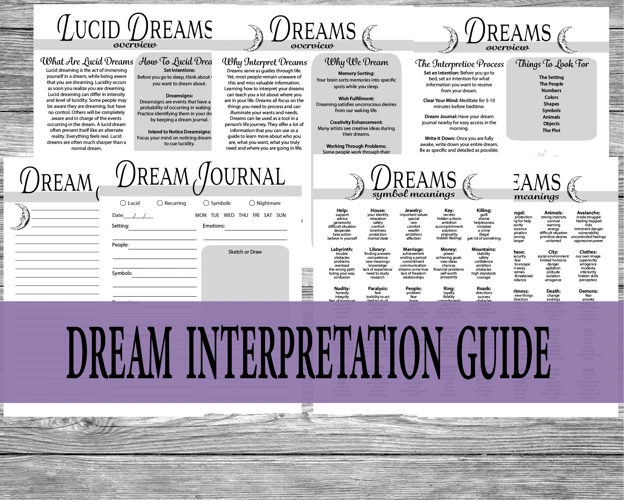
In lucid dreams, where we become aware that we are dreaming and gain some control over the dream’s narrative, symbols can take on an even more powerful significance. These symbols serve as gateways to our subconscious mind and can provide profound insights and guidance. When we encounter symbols in a lucid dream, they often represent deeply rooted beliefs, desires, or fears that we may not consciously acknowledge. Animals in lucid dreams can represent our instincts, emotions, or aspects of our personalities. For example, seeing a black panther may symbolize our inner strength and power. Nature symbols, such as a raging storm or a tranquil forest, can reflect our connection to the environment and our emotions. Objects like a key or a locked door can signify opportunities or obstacles in our waking life. People in lucid dreams can represent different aspects of ourselves or individuals we know. Interacting with them in the dream state can provide insights into our relationships or unresolved issues. Actions, such as flying or falling, can symbolize a sense of freedom or loss of control. Places in lucid dreams can be familiar or completely fantastical, representing different states of mind or aspects of our subconscious. Exploring these symbols in lucid dreams can open up a world of self-discovery and personal growth, helping us better understand ourselves and navigate our waking lives with greater insight and clarity.
Psychological Interpretation of Dreams

Psychological interpretation of dreams delves into the deeper layers of our mind, revealing elements of our unconscious desires, emotional processing, repressed memories, and even the impact of trauma. Our dreams often serve as a canvas for the manifestation of our inner turmoil and unresolved conflicts. By analyzing dream symbolism and themes, we can gain valuable insights into our subconscious thoughts and motivations. Unconscious desires may be expressed through vivid scenarios and interactions with dream characters, shedding light on aspects of ourselves that we may not be fully aware of in our waking lives. Emotional processing occurs within dreams, allowing us to process and come to terms with intense emotions and experiences. Dreams can also serve as a gateway to repressed memories, bringing forth buried emotions and providing an opportunity for healing and resolution. For example, dreaming of the left arm could symbolize a need for balance and self-expression. Psychological interpretation of dreams allows us to navigate the complexities of the human mind, providing a deeper understanding of ourselves and facilitating personal growth and psychological well-being.
Unconscious Desires
Understanding the meaning of our dreams can provide insight into our unconscious desires. Dreams often serve as a window into our truest and deepest longings, ones that we may not be fully aware of in our waking lives. By delving into dream interpretation, we can uncover these hidden desires and gain a better understanding of our subconscious motivations and needs. Examining dream symbols, actions, and interactions can reveal underlying wants and aspirations that may have been buried or suppressed. For example, dreaming of being pursued might indicate a desire for freedom or escape from certain aspects of our lives. Exploring the significance of these symbols and themes can help us acknowledge and address these unconscious desires, leading to personal growth and fulfillment. So, it’s crucial to pay attention to the messages our dreams convey and use them as a guide to uncover our hidden desires and aspirations.
Emotional Processing
Emotional processing plays a crucial role in dream interpretation. Our dreams often serve as a platform for us to process and express our deeply-rooted emotions. Through dreams, we can experience a range of emotions, such as joy, fear, anger, and sadness, in a safe and symbolic environment. These emotions may be associated with specific events, people, or situations from our waking lives that we may not have fully acknowledged or dealt with. Dreaming allows us to explore and confront these emotions in a metaphorical way, providing an opportunity for healing and growth. It is essential to pay attention to the emotions experienced in our dreams as they can provide valuable insights into our emotional well-being. By analyzing the emotions present in our dreams, we can gain a better understanding of our emotional state and uncover any unresolved issues that require our attention. So, when interpreting your dreams, be sure to reflect on the emotions you felt during the dream and consider their significance in relation to your waking life experiences.
Repressed Memories
Repressed memories are a fascinating aspect of dream interpretation. Our dreams can often serve as a window into memories that have been buried deep within our subconscious. These memories may be associated with traumatic experiences or events that we have consciously or unconsciously chosen to forget. Dream analysis can help us uncover these repressed memories by presenting them in symbolic or metaphorical form. Through exploration and understanding, we can begin to unravel the emotional significance behind these memories, allowing us to heal and address any unresolved trauma. Whether it’s a recurring dream or a specific symbol that triggers a memory, delving into the realm of dream interpretation can aid in the retrieval and processing of repressed memories, ultimately bringing us closer to self-awareness and healing. So, if you’re curious about the significance of repressed memories in your dreams, dive into the exploration and discover what lies beneath the surface.
Dealing with Trauma
Dealing with trauma is a profound aspect of dream interpretation. Dreams have the power to bring unresolved traumas to the surface, allowing us to confront and process our past experiences. Trauma-related dreams can manifest as vivid flashbacks, nightmares, or symbolic representations of the traumatic event. These dreams provide an opportunity for healing and releasing emotional wounds. By analyzing the symbols, emotions, and narratives present in these dreams, we can gain insight into the impact of the trauma on our subconscious mind. Understanding the messages and symbolism can help us address and come to terms with the trauma, facilitating the healing process. It is essential to approach these dreams with compassion and seek support from mental health professionals or support groups. Utilizing therapeutic techniques such as EMDR or trauma-focused therapy alongside dream analysis can be a powerful tool in our journey to heal from past traumas.
Interpreting Nightmares and Anxiety Dreams
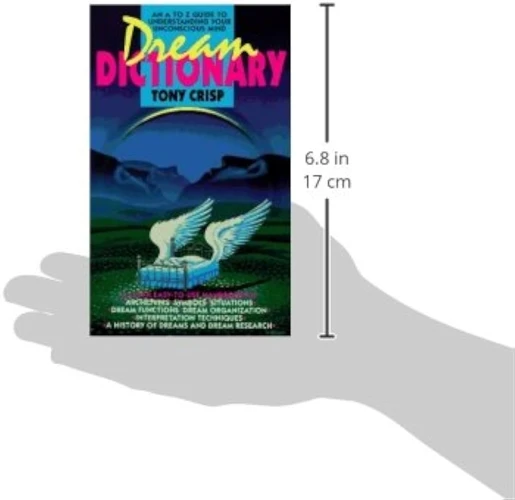
Nightmares and anxiety dreams can be unsettling and leave us feeling distressed upon waking. However, they hold valuable insights into our fears, anxieties, and unresolved issues. When interpreting nightmares and anxiety dreams, it is important to pay attention to the emotions and themes present in the dream. These dreams often act as a symbolic representation of our deepest worries, allowing us to confront and process them in a safe space. Symbols such as being chased, falling, or encountering dark figures may represent feelings of vulnerability, powerlessness, or unresolved trauma. By analyzing these symbols and understanding their underlying meaning, we can gain a better understanding of our fears and anxieties. Exploring the context and events leading up to the nightmare can also provide valuable clues to their interpretation. Additionally, keeping a dream journal and noting
Subscribe to Our Newsletter
Sign up to receive the latest news and updates.
Using Dream Journals for Interpretation

Using dream journals is a powerful tool for interpreting and understanding the messages in our dreams. Keeping a dream journal allows us to capture and record the details of our dreams while they are still fresh in our minds. By writing them down, we can reflect on the symbols, emotions, and scenarios that appear in our dreams. The journal acts as a repository of our dream experiences, a portal to our unconscious mind. It helps us identify patterns, recurring themes, and symbols that hold significance to us. Through this process, we can begin to unravel the hidden meanings and messages that our dreams are trying to convey. By diligently recording our dreams in a journal, we create a personal database that we can revisit and analyze over time. This practice enhances our dream recall and strengthens our connection to our subconscious. Additionally, by comparing and contrasting the content of our dreams over time, we may discover personal growth, unresolved issues, or significant life events unfolding in our dreamscape. So, grab a notebook or create a digital dream journal, and embark on a journey of self-discovery and dream interpretation.
Common Dream Archetypes and Their Meanings
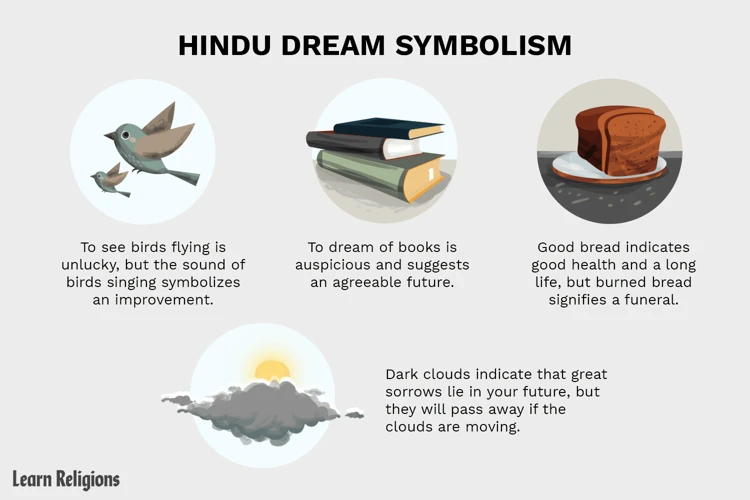
Dreams often contain powerful symbols and archetypes that carry profound meanings and messages. These archetypes are universal symbols that appear in the dreams of people across cultures and time. Understanding these common dream archetypes can provide insights into our collective unconscious and the deeper aspects of our being. One such archetype is the left arm, which symbolizes strength, support, and control in certain dream contexts. Dreaming of the left arm may indicate a need for assertiveness or an imbalance in personal power dynamics. Another common archetype is abandonment, which symbolizes feelings of neglect, rejection, or loss in our waking lives. Dreams of abandonment may reveal unresolved emotions or a fear of being left alone. Another intriguing archetype is being buried alive, which signifies feelings of being trapped, suffocated, or overwhelmed by a situation. It may represent a need for freedom or a desire to break free from constraints. Exploring these archetypes and their meanings allows us to gain deeper insights into our subconscious thoughts, emotions, and experiences. By unravelling the symbolism behind these archetypes, we can uncover hidden truths about ourselves and navigate our waking lives with greater awareness and understanding.
Interpreting Dreams of Flying and Falling

Dreams of flying and falling are some of the most common and intriguing dreams that people experience. These dreams often carry powerful symbolism and can reveal important insights about our emotions, aspirations, and fears. When interpreting dreams of flying, it is essential to consider the context and the emotions associated with the dream. Flying can represent a sense of freedom, empowerment, and the ability to rise above challenges. It may indicate a desire for independence, exploration, or escaping from constraints in waking life. On the other hand, dreams of falling can evoke feelings of vulnerability, insecurity, or a loss of control. Falling dreams may symbolize a fear of failure, a lack of confidence, or a sense of instability in certain aspects of our lives. Understanding the specific details and sensations experienced in these dreams can offer further clues to their meaning. For example, if you dream of flying with ease and joy, it may signify a positive and confident outlook. Conversely, if you dream of falling uncontrollably, it could suggest feelings of anxiety, insecurity, or a need for support in your waking life. It is important to note that dream interpretations can vary based on individual experiences and personal associations. It is essential to explore these dream symbols with introspection and consider their relevance to your own life experiences. By delving into the meaning of dreams of flying and falling, we can gain a deeper understanding of ourselves and navigate the challenges and aspirations in our waking lives.
Exploring Dreams of Being Chased

Being chased in dreams is a common and often unsettling experience that many people encounter. These dreams can elicit fear, anxiety, and a sense of urgency. Exploring dreams of being chased can provide valuable insights into our subconscious fears, insecurities, and the challenges we may be avoiding in our waking lives. The act of being chased represents a feeling of being pursued or pursued by something or someone. The symbolism behind the chaser and the circumstances of the chase can vary greatly, each carrying its own significance. It is essential to pay attention to the emotions and sensations experienced during these dreams, as they can offer clues to the underlying meaning. For example, being chased by a known person may suggest unresolved conflicts or tension in the relationship. On the other hand, being chased by a mysterious entity may indicate unresolved fears or unresolved trauma. By analyzing the details of the chase, such as the environment, speed, and outcome, we can uncover insights into our own behavior, coping mechanisms, and the need to confront and overcome challenges in our lives. So, let’s delve deeper into the intricate world of dreams of being chased and discover the hidden messages they hold.
The Significance of Dream Settings
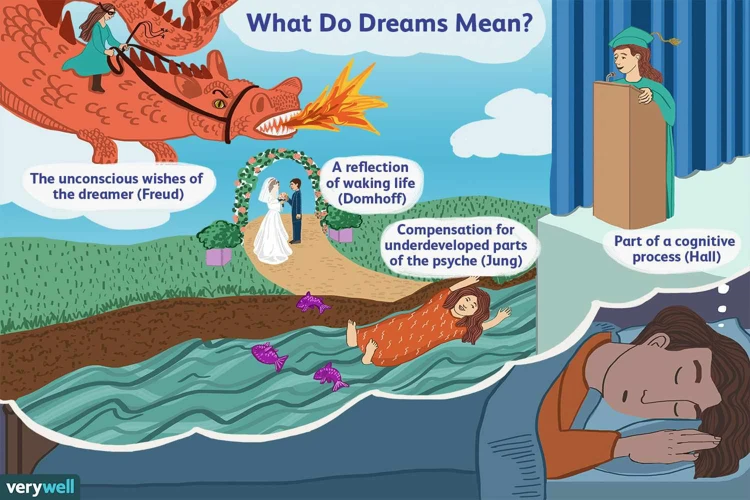
Dream settings play a crucial role in understanding the hidden meaning behind our dreams. The environments and locations we find ourselves in during our dreams can hold significant symbolism and provide insights into our subconscious mind. Whether we are in familiar places, unfamiliar landscapes, or surreal realms, the settings in our dreams offer clues about our emotions, memories, and experiences. For example, dreaming of being in a crowded marketplace may represent a desire for social connection or a feeling of being overwhelmed by the demands of daily life. On the other hand, dreaming of being in a deserted, abandoned place could indicate feelings of isolation or a need for introspection. The significance of dream settings extends to specific locations as well, such as dream houses or dream cities, which may reflect our aspirations, desires, or fears. Exploring the symbolism of these settings can provide deeper insights into our subconscious mind and assist us in understanding the messages conveyed by our dreams. Understanding the importance of dream settings helps us uncover hidden emotions, memories, and experiences that impact our waking lives. So, let us dive into the fascinating world of dream settings and unravel the secrets they hold.
Interpreting Dream Relationships and Interactions
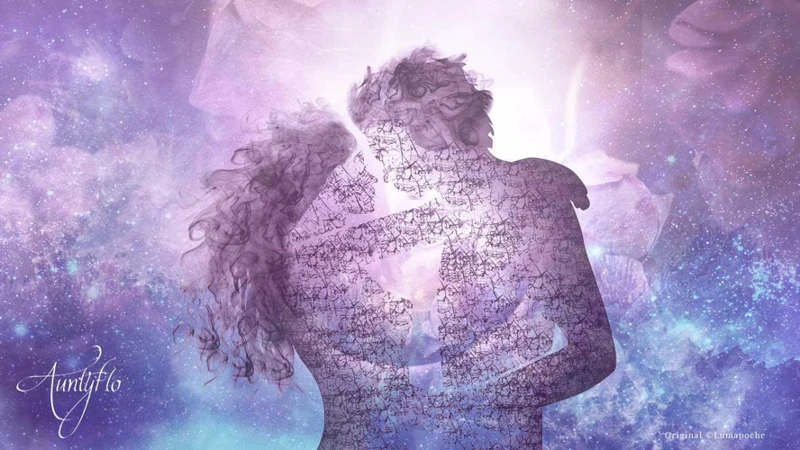
Interpreting dream relationships and interactions is a fascinating aspect of dream analysis. Dreams often feature various individuals, whether familiar or unknown, and their interactions can hold significant meaning. When analyzing dream relationships, pay attention to the emotions and dynamics between the dream characters. Are they friendly, hostile, or indifferent? These interactions reflect our own internal conflicts, desires, and relationships in waking life. It is important to consider the roles that each person plays in the dream, as they may represent certain aspects of ourselves or individuals we know. For example, a dream about a left arm may symbolize strength, assistance, or even a sense of vulnerability. Understanding these symbolic representations can offer valuable insights into our interpersonal connections and how we navigate relationships in our waking life. So, delve into the realm of dream relationships and allow them to guide you towards self-discovery and a deeper understanding of the connections that shape our lives.
Decoding Dream Numbers and Time

Decoding dream numbers and time is a fascinating aspect of dream interpretation that can provide valuable clues about the messages conveyed by our dreams. When specific numbers appear in our dreams, they often hold significant symbolism and meaning. These numbers can represent personal milestones, important dates, or even carry spiritual significance. Paying attention to the time depicted in our dreams can also offer insights into the timing of events or emotions in our waking lives. It is important to note that the interpretation of numbers and time in dreams is highly subjective and can vary depending on the individual’s cultural, personal, and spiritual beliefs. Dreamers can explore numerology and symbolism associated with different numbers to gain further understanding of their dream messages. So, the next time you encounter numbers or notice the passage of time in your dreams, take a moment to reflect and decipher the hidden meanings they may hold. To learn more about specific dream symbols and their interpretations, you can explore resources like the meaning of dreams involving the left arm.
Interpreting Recurring Dreams
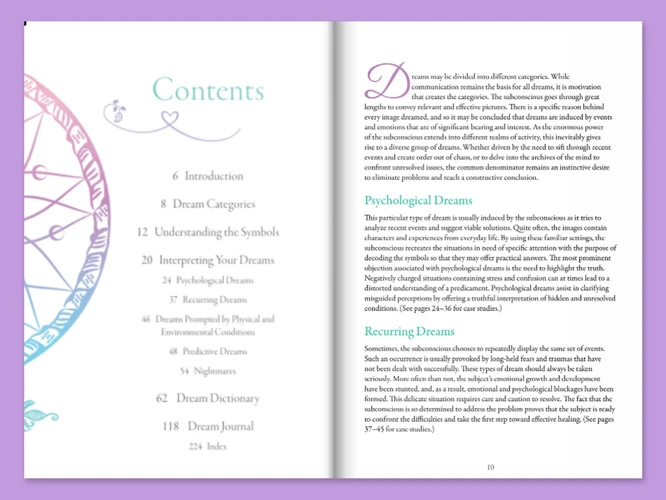
Interpreting recurring dreams is a key aspect of dream analysis. These dreams that repeatedly occur hold significant meaning and can offer valuable insights into our subconscious mind. When a dream recurs, it indicates that there is an unresolved issue or a message that needs our attention. By identifying the common elements and themes in recurring dreams, we can better understand what our subconscious is trying to communicate. Whether it’s recurring dreams about being chased, falling, or being unprepared for an important event, each repetition carries its own unique symbolism. Keeping a dream journal and documenting these recurring dreams can help identify patterns and triggers that lead to their recurrence. Exploring the emotions and thoughts associated with these dreams can provide clues to the underlying issues we need to address in our waking lives. Interpreting recurring dreams allows us to gain self-awareness, confront challenges, and make positive changes for personal growth and well-being. So, pay attention to those repetitive dreams that continue to visit you night after night—they may be holding the key to unlocking important messages from your subconscious mind.
Exploring Cultural and Symbolic Dream Meanings

When it comes to dream interpretation, cultural and symbolic meanings play a significant role in understanding the messages encoded within our dreams. Different cultures and societies ascribe unique meanings to various symbols found in dreams. For example, in Western culture, dreaming about a snake may symbolize deceit or temptation, while in some Native American cultures, it represents transformation and healing. Similarly, the interpretation of numbers and colors can vary widely across cultures. In Chinese culture, the number 8 is considered lucky and symbolizes prosperity, while in many Western cultures, the color red signifies passion or danger. Exploring these cultural and symbolic associations can provide deeper insights into our dreams and help us understand the universal meanings behind certain symbols. By incorporating these cultural and symbolic interpretations into our dream analysis, we can gain a broader perspective on the messages and lessons our dreams are trying to convey. So, let’s embark on a cross-cultural exploration of dream meanings and discover the rich tapestry of symbols that permeate our dreamscapes.
Astrological and Numerological Dream Interpretation
Astrological and numerological dream interpretation offers a unique perspective in understanding the symbolic meanings within our dreams. Astrology, the study of celestial influences, can provide insights into our dreams based on our zodiac signs and planetary alignments at the time of dreaming. By examining the astrological associations of dream symbols, we can gain a deeper understanding of the energies and influences affecting our dreamscapes. Numerology, on the other hand, assigns significance to numbers and their vibrations. Interpreting dream numbers through numerology allows us to uncover hidden messages and insights related to our personal traits, life path, and spiritual growth. By combining astrology and numerology, we can create a more comprehensive interpretation of our dreams, tapping into cosmic energies and spiritual guidance. So, whether it’s the alignment of the stars or the vibrational energy of numbers, astrological and numerological dream interpretation offers a fascinating approach to uncovering the deeper meanings encoded in our dreams.
Conclusion
In conclusion, dream interpretation is a powerful tool for understanding the hidden meanings and messages within our dreams. It allows us to delve into the depths of our subconscious mind, uncovering aspects of ourselves that may be overlooked in our waking lives. By deciphering the symbols, colors, scenarios, and archetypes present in our dreams, we gain valuable insights into our thoughts, emotions, and experiences. Dream interpretation can provide guidance, self-discovery, and even serve as a therapeutic tool. Keeping a dream journal can help us track patterns and recurring themes, leading to a deeper understanding of ourselves. It is through the exploration of our dreams that we can unlock the secrets of our inner world and embark on a path of personal growth and self-awareness. So, embrace the enigmatic language of your dreams and let them guide you on a journey of self-discovery and transformation.
Frequently Asked Questions
1. Can dream interpretation predict the future?
Dream interpretation does not have the ability to predict the future. Dreams are a reflection of our thoughts, emotions, and experiences; they provide insights into our subconscious mind rather than predicting specific events.
2. What if I can’t remember my dreams?
It is common to forget dreams shortly after waking up. However, there are techniques you can try to improve dream recall. Keeping a dream journal, setting intentions before sleep, and practicing relaxation techniques can help enhance your ability to remember dreams.
3. Do dreams have universal meanings?
The meanings of dreams can vary among individuals and cultures. While some symbols may have universal interpretations, it is important to consider personal experiences and associations when interpreting dreams.
4. Can dreams provide insight into past traumas?
Yes, dreams can offer insight into unresolved past traumas. They often provide a safe space for your mind to process and heal from traumatic experiences. If you suspect your dreams are related to trauma, it may be beneficial to seek professional support.
5. Are nightmares always negative?
Not all nightmares have negative meanings. Nightmares can serve as a way for your mind to process and confront fears, anxieties, or unresolved issues. It is important to explore the underlying emotions and messages behind the nightmares.
6. Can dream interpretation be subjective?
Yes, dream interpretation is subjective to some extent. While there are common symbols and meanings, personal experiences and associations play a significant role in understanding the unique messages within your dreams.
7. Can dream interpretation help with problem-solving?
Dream interpretation can provide insights and alternative perspectives that might help with problem-solving. Dreams often contain symbolism and scenarios that can shed light on unresolved issues and offer creative solutions.
8. Can dream interpretation be therapeutic?
Yes, dream interpretation can be a therapeutic tool. It helps individuals gain self-awareness, process emotions, and explore unconscious thoughts. Analyzing dreams can contribute to personal growth, healing, and gaining a deeper understanding of oneself.
9. Can lucid dreaming enhance dream interpretation?
Lucid dreaming, the ability to be aware and control your actions within a dream, can enhance dream interpretation. It allows you to actively engage with dream symbols and scenarios, leading to a deeper understanding of their meaning.
10. Is it possible to have meaningful dreams without symbols?
Yes, meaningful dreams can occur even without obvious symbols. Dreams can be rich in emotions, scenarios, and themes that provide valuable insights into your inner self. It is important to consider the overall context and emotions of the dream when interpreting it.







